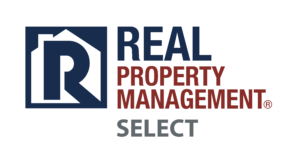How to Turn One Property Into a Profitable Portfolio
Real estate investing doesn’t stop at a single property. For many successful investors, the first rental is only the beginning. Whether you’re a new landlord in Sacramento or an experienced owner in Concord or Napa, scaling your real estate portfolio can lead to long-term wealth, passive income, and greater financial security.
But expanding from one rental to many requires careful strategy. Here’s how to turn your first property into a thriving investment portfolio.
1. Maximize Performance of Your First Property
Before expanding, ensure your current property is operating efficiently:
- Consistent Rent Collection: Establish a solid rent collection system.
- Tenant Retention: Prioritize tenant satisfaction to reduce turnover.
- Preventive Maintenance: Stay ahead of repairs to protect value and reduce long-term costs.
- Know Your Numbers: Understand your cash flow, cap rate, and ROI. This financial clarity will guide future purchases.
2. Leverage Equity for Growth
If your property has appreciated, consider leveraging that equity:
- Cash-Out Refinance: Reinvest the funds into a down payment on your next property.
- Home Equity Line of Credit (HELOC): Provides flexible access to capital without selling.
Work with a financial advisor or lender familiar with investment properties in California markets like Roseville and East Bay to explore your options.
3. Choose the Right Markets
Not all areas offer the same return. Look for:
- Job and population growth (e.g., Sacramento remains one of the fastest-growing cities in Northern California)
- Low vacancy rates
- Strong rental demand
- Landlord-friendly regulations
Familiarity with neighborhoods across Roseville, Napa, and the East Bay gives you a local edge when selecting your next investment.
4. Diversify Property Types Strategically
Scaling your portfolio doesn’t mean buying more of the same. Consider:
- Single-family rentals
- Small multifamily units
- Mixed-use or condo units (depending on local laws)
Diversification helps reduce risk and allows you to experiment with different management strategies.
5. Automate and Delegate Property Management
Managing multiple units gets complex. Hiring a professional property management company can be a game-changer. Benefits include:
- Tenant screening and placement
- Rent collection and lease enforcement
- Maintenance coordination
- Legal compliance and eviction handling
At Real Property Management Select, we help East Bay and Sacramento investors scale confidently, knowing their assets are protected and performing.
6. Stay Educated and Compliant
California’s rental housing laws change frequently—especially regarding rent caps, eviction rules, and local ordinances. Staying compliant protects your investment and reputation.
Regularly review:
- State laws (like AB 1482)
- Local rent control policies
- Fair housing and tenant screening regulations
Turning one rental into a portfolio doesn’t happen overnight—but with the right approach, trusted partners, and market insight, it’s more achievable than ever.
Ready to scale your rental business with confidence?
Let our team help you plan the next step in your real estate journey.
